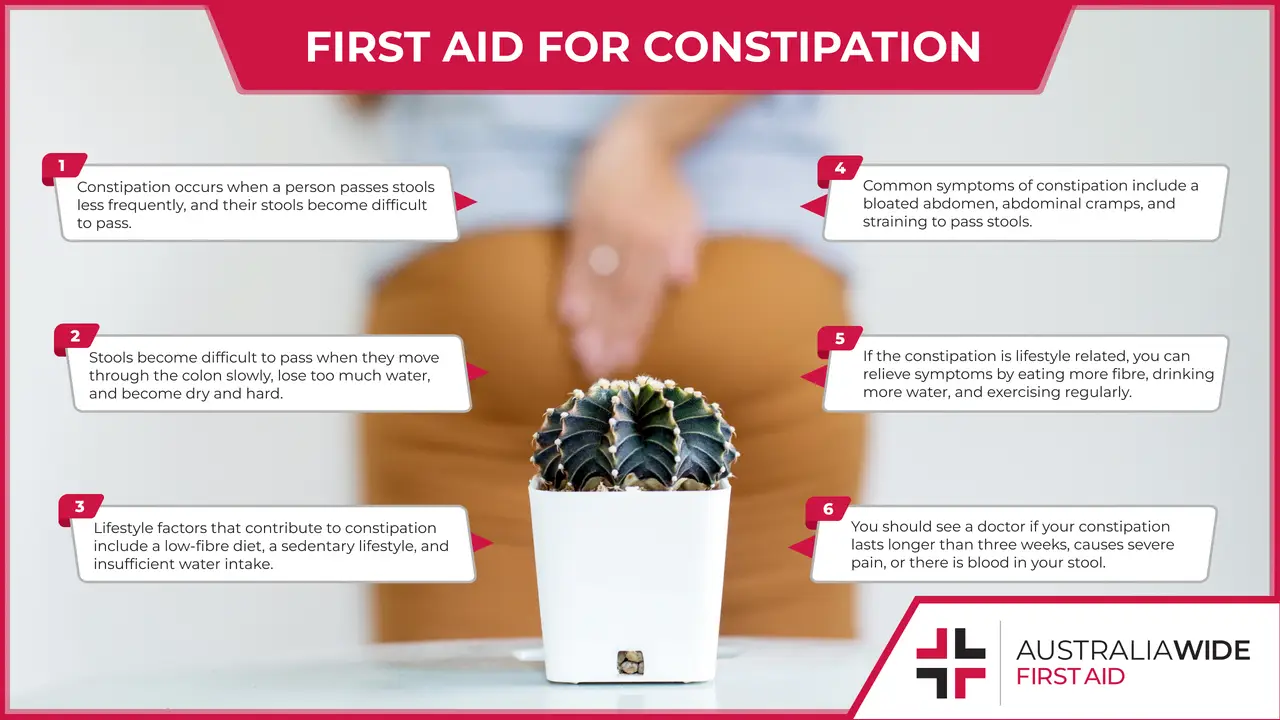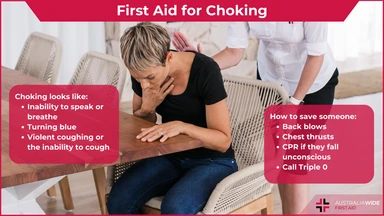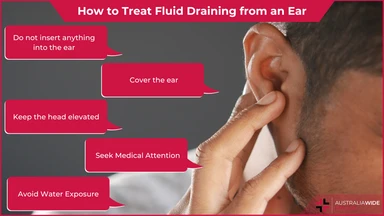First Aid for Constipation


Constipation occurs when a person passes stools less frequently, and their stools become difficult to pass.
Constipation typically occurs when a person changes their diet or routine, or they consume an inadequate amount of fibre.
It is important to know first aid for constipation, as chronic constipation can either lead to, or be a symptom of, ongoing health complications.
The technical definition of constipation is when a person has less than three bowel movements per week.
However, bowl movements are unique to each person, and some people may only have one to two bowel movements per week as their standard pattern.
As such, a person can be considered constipated if they begin passing stools less frequently, and their stools subsequently become dry, hard, and painful or difficult to pass.
Constipation occurs when stools move too slowly through the large intestine.
This results in too much water being absorbed from the stool, which becomes dry, hard, and difficult to pass.
Many lifestyle factors can contribute to constipation, including a low-fibre diet, insufficient water, and a lack of regular exercise.
First aid for constipation depends on the cause. If the constipation is related to lifestyle factors, you can relieve symptoms by:
You should see a doctor if your constipation lasts longer than three weeks, causes severe pain, or there is blood in your stool.
The constipation might relate to factors that are outside of your control, such as prescription medication, old age, or an underlying medical problem like an abdominal hernia or irritable bowel syndrome.
It is important to see a doctor if your symptoms get worse instead of better, as complications of chronic constipation include rectal prolapse, and faecal and urinary incontinence. The below video goes into even greater detail about first aid for constipation:
For more information on how to prevent, identify, and manage symptoms for constipation, head to a first aid course near you.
The following first aid courses look at constipation:

October 13, 2023
Choking occurs when an object or a piece of food becomes lodged in the throat, blocking the airway. The adult or child will have difficulty breathing, and may lose consciousness. Quick and effective action is essential to prevent severe consequences and death.

September 22, 2023
Knowing how to provide first aid for fluid draining from an ear is crucial to alleviate discomfort and potentially prevent complications.

July 31, 2023
This article covers treatment/first aid for nose bleeds, and also covers all of the common misconceptions and myths about treating a bleeding nose.